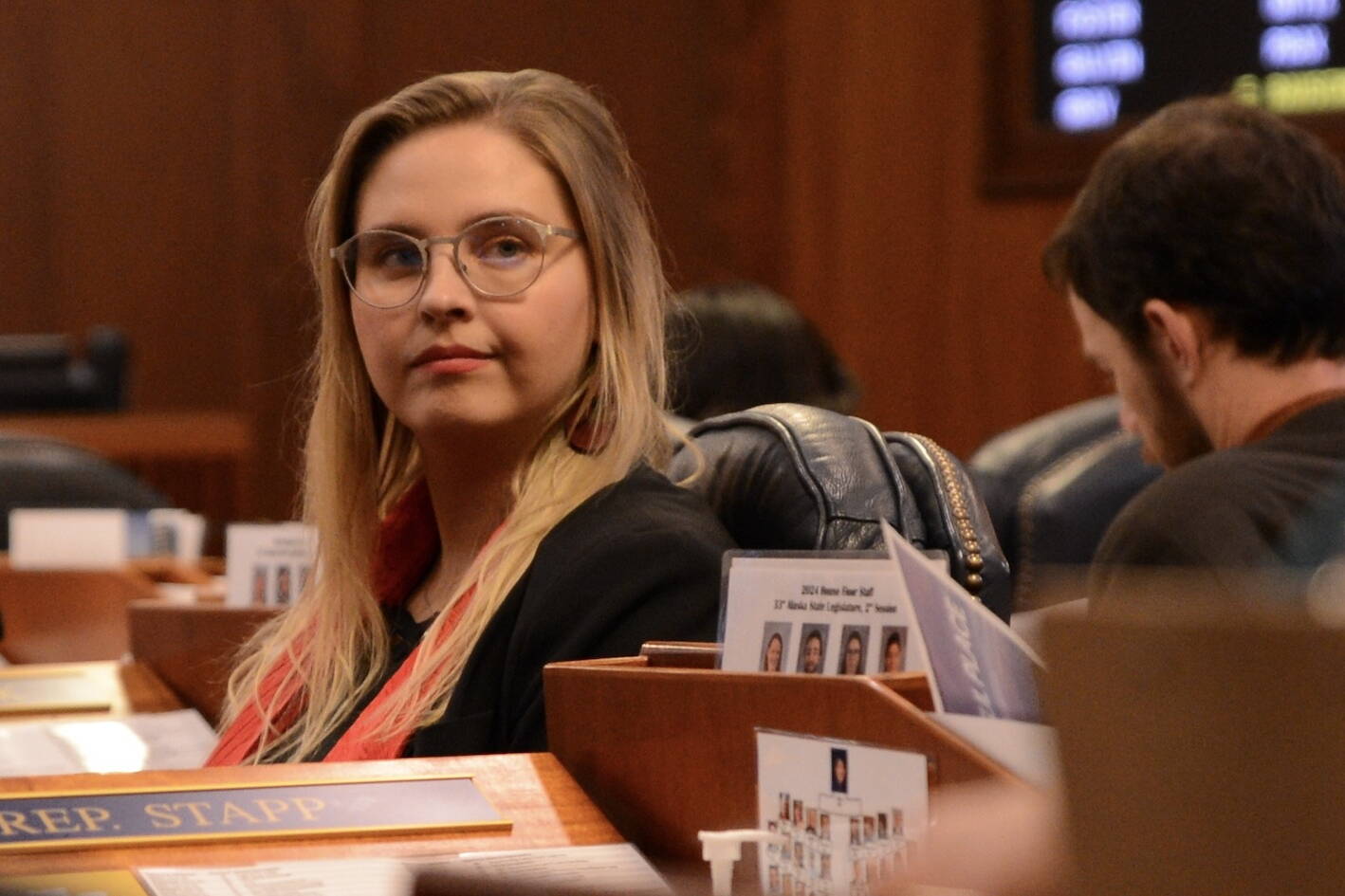Members of the Alaska House of Representatives on Thursday voted to allow Alaska women to receive 12 months’ worth of birth control at a time from pharmacies.
That’s up from 90 days, the current limit in state law.
House Bill 17, approved by a 29-11 vote, also requires insurance companies to cover prescription contraceptives without a co-payment and requires them to retroactively cover prescriptions if someone signs up for insurance and has an existing prescription.
The bill advances to the Senate, where the measure already has wide support.
Rep. Ashley Carrick, D-Fairbanks, introduced the bill last year and said current law “represents a very large barrier, especially in rural Alaska,” for women seeking birth control.
While the state allows a doctor to prescribe up to a year’s worth of birth control at a time, pharmacists are prohibited from distributing more than 90 days’ worth of medication during a visit. That requires patients to return to the pharmacy multiple times a year.
Speaking in support of the bill, Rep. Jennie Armstrong, D-Anchorage, said that state law allows a man to obtain 12 months’ worth of Viagra at a time.
“Women deserve the same consideration for access to their birth control,” she said.
More than half of U.S. states already allow the extended prescriptions permitted under HB 17, according to Kaiser Health News, and many have the bill’s provisions requiring coverage.
Even with the changes, Alaska will remain worse than the national average on access to birth control.
Thirty-four states and the District of Columbia allow pharmacists to provide a birth-control prescription — something not allowed in Alaska and unchanged by HB 17 — and nine states require insurance companies to cover birth control without a prescription.
Passing HB 17 required significant compromises to satisfy skeptical Republicans and represented an accomplishment for a Democratic lawmaker who sits in the House’s minority caucus.
A version of the bill has been introduced in every edition of the Alaska Legislature since 2017. Until now, that first version was the most successful — the House passed it in 2018 by a 21-17 vote, but the Senate never heard it, and it died.
Emergency contraception — the so-called “plan B” pill — was included in the original version of the bill but removed during the legislative process. Republicans also amended the bill to add additional language that allows religious employers to deny birth-control coverage.
Carrick said those additions were not enough to kill the bill and mostly mirrored existing federal law.
Even with the changes, some Republicans voted against the measure. Rep. Kevin McCabe, R-Big Lake, said he had been inclined to vote for the bill until he saw it was endorsed by Planned Parenthood.
Reps. Sarah Vance, R-Homer, and David Eastman, R-Wasilla, said they opposed the bill because it didn’t specifically address abortion-causing medication, something Carrick said is a separate topic.
Rep. Ben Carpenter, R-Nikiski, said he was voting against the bill because of concerns about the costs to medical insurance companies, but that argument was rebutted by Rep. Mike Prax, R-North Pole, who said he had the same concerns until he went and spoke with insurance companies who said that actuarially, it actually saves them money.
That’s because the cost of unplanned pregnancies and births outweigh the cost of the prescriptions, something multiple legislators mentioned.
“I see it as a very rural-friendly bill, and I see it as saving money because there are a lot of costs associated with births that are unplanned or unexpected,” said Rep. Bryce Edgmon, I-Dillingham.
Rep. CJ McCormick, D-Bethel, said that withholding someone’s birth control is a form of domestic abuse, and allowing a 12-month supply could address the problem.
Supportive legislators also pointed out the convenience factor allowed by the bill.
“When I was on birth control, it was a constant run to the pharmacy,” said Rep. Julie Coulombe, R-Anchorage. “I’ve always lived in urban areas, and it wasn’t easy.”
Coulombe said she considers herself “pro-life,” and if someone wants to prevent abortions, one of the best ways is to avoid unplanned pregnancies.
Rep. Tom McKay, R-Anchorage, was another advocate. He said he has four daughters, and it isn’t his place to get between a woman and her own health care decisions.
“For men to tell women what to do can be really dangerous, and frankly, it’s kind of an IQ test,” he said.
• James Brooks is a longtime Alaska reporter, having previously worked at the Anchorage Daily News, Juneau Empire, Kodiak Mirror and Fairbanks Daily News-Miner. This article originally appeared online at alaskabeacon.com. Alaska Beacon, an affiliate of States Newsroom, is an independent, nonpartisan news organization focused on connecting Alaskans to their state government.

